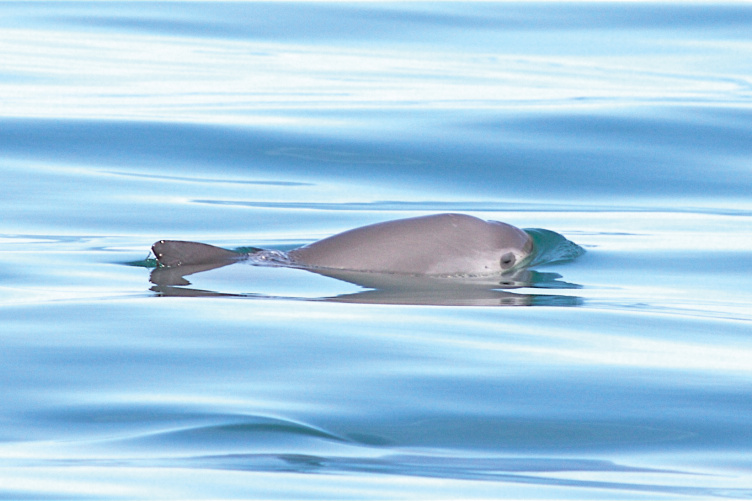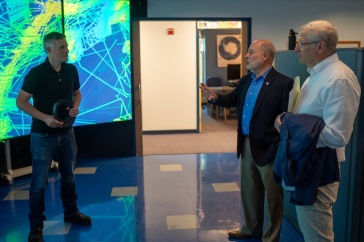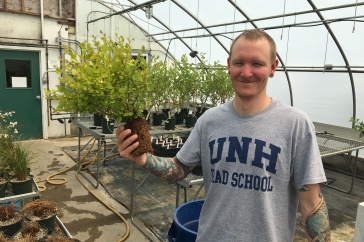
The vaquita (Phocoena sinus), with its signature dark eye ring, is critically endangered. Photo by Thomas A. Jefferson, from the joint investigation project with the Coordinación de Investigación y Conservación de Mamíferos Marinos of the Instituto Nacional de Ecología (INE). Image taken under the permit No. DR7488708 from the Comisión Nacional de Áreas Naturales Protegidas (CONANP), SEMARNAT.
Chris Glass wouldn’t blame you if you’ve never heard of the vaquita. The small porpoise is so secretive that it wasn’t discovered as a species until 1958. Plus, there are only about 60 of them in existence, all in the upper Gulf of California, making the vaquita the world’s most rare marine mammal.

Last month Glass, director of the Northeast Consortium and a research professor in UNH’s Ocean Process Analysis Laboratory, was tapped to lead an international committee of experts committed to saving the vaquita by improving fishing techniques. His appointment, announced by Mexico’s National Institute of Fisheries and the World Wildlife Fund, follows a bilateral agreement by President Obama and Mexican President Enrique Pena Nieto to protect the vaquita.
“We need to develop ways that fishermen can continue to earn a living without endangering the vaquita,” Glass says. “My work has been based on reducing bycatch and discard in global fisheries, developing ways we can catch what we want to catch and promote sustainable fishing practices, and release everything else untouched underwater.”
“We need to develop ways that fishermen can continue to earn a living without endangering the vaquita.”
Gillnets, nearly invisible fine nets that entangle and capture target fish, are by far the largest threat to the vaquita, who get trapped and, as mammals, drown. Mexico has made a two-year ban on gillnets permanent, so Glass and his committee aim to improve vaquita-safe fishing technology to support shrimp and other fisheries in the upper Gulf of California.
The presidential agreement will also put teeth into a crackdown on illegal gillnet fishing of another endangered species, the totoaba, whose swim bladder is prized in Chinese herbal medicine. “The illegal fishing has been rampant,” says Glass. “International trade in totoaba has been banned for a number of years, but fishermen receive $4000 per pound of swim bladder, equivalent to half a year’s salary for legal fishing.”
While Glass says he’s honored and excited to chair this committee of international experts, the work is sobering. “It’s a double-edged sword,” he admits, noting that the vaquita’s population numbers have plummeted by one-third in just two years. “If we’re not successful, it’s pretty devastating. But if we do reduce bycatch and discard to zero, I think there’s hope.”
-
Written By:
Beth Potier | UNH Marketing | beth.potier@unh.edu | 2-1566



















































